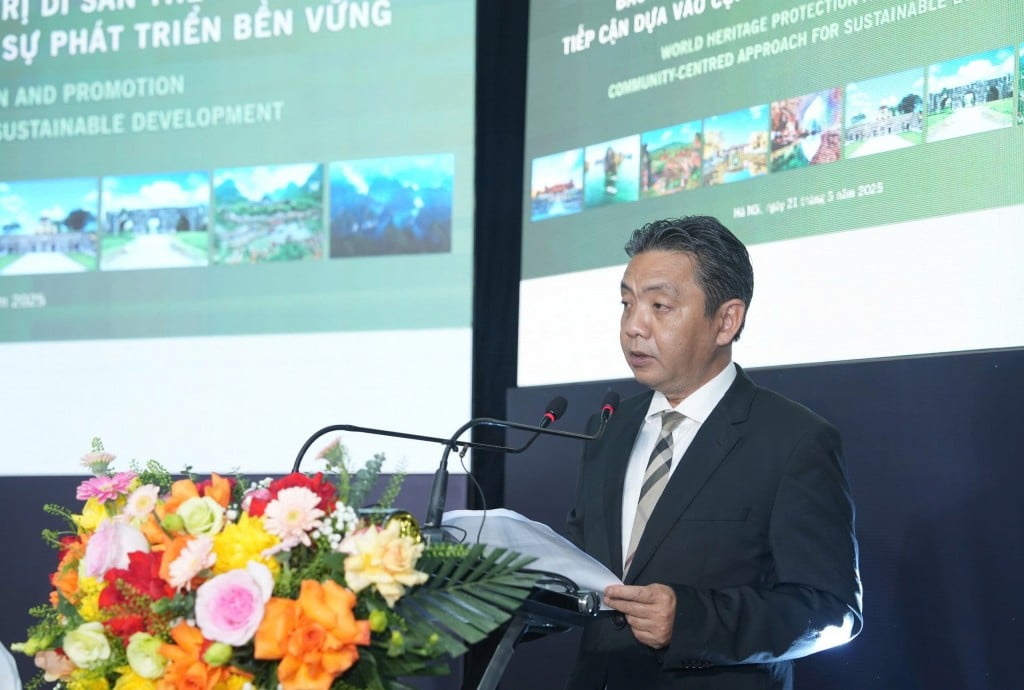
The workshop was chaired by Mr. Lazare Eloundou Assomo, Director of the World Heritage Center; Deputy Minister of Culture, Sports and Tourism Hoang Dao Cuong, Vice Chairman of the Vietnam National Commission for UNESCO and Vice Chairman of the Hanoi People's Committee Vu Thu Ha. Quang Ninh province was represented by Ms. Nguyen Thi Hanh, Vice Chairman of the Provincial People's Committee.
The workshop is an event in a series of activities to implement the Action Plan for the period 2021-2025 of the Vietnam National Commission for UNESCO, the Memorandum of Understanding on Vietnam - UNESCO Cooperation for the period 2021-2025, the Cultural Diplomacy Strategy to 2030 and the conclusions of the National Cultural Conference emphasizing the role of culture in serving local socio-economic development.
The workshop aims to assess the overall work of preserving and promoting the value of world cultural and natural heritage in Vietnam, the contribution of world heritage to local socio-economic development (especially community outreach); enhance and promote the role and value of world cultural and natural heritage in the sustainable development strategy.
Speaking at the opening of the workshop, Deputy Minister of Culture, Sports and Tourism Hoang Dao Cuong, Vice Chairman of the Vietnam National Commission for UNESCO, said: On October 19, 1987, Vietnam officially ratified its participation in the 1972 Convention on the Protection of the World Cultural and Natural Heritage.
Since then, Vietnam has had 8 cultural and natural heritages recognized by UNESCO as world heritages. In addition, since joining the 1972 Convention, Vietnam has been elected twice as one of the 21 members of the World Heritage Committee for the 2013-2017 and 2023-2027 terms.
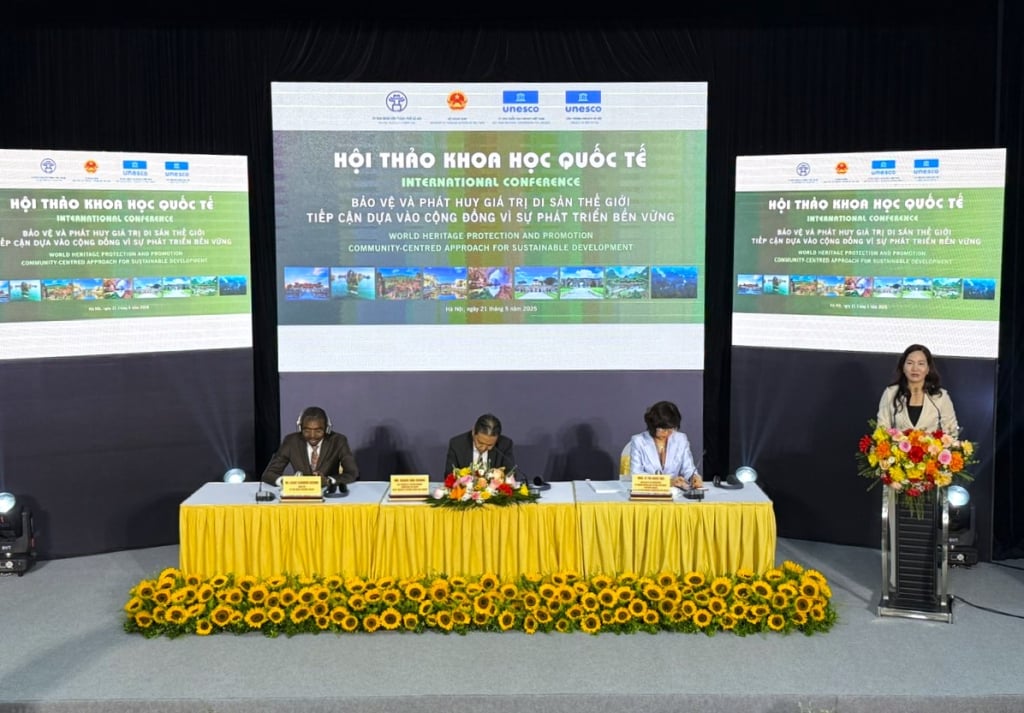
In particular, on November 23, 2024, the National Assembly passed the Law on Cultural Heritage, contributing to the full institutionalization of the Party and State's guidelines and policies on cultural heritage, with many new points, deeply affecting all aspects of the country's cultural, social and economic life, creating a fundamental shift in position and strength for the cause of managing, protecting and promoting the values of Vietnam's cultural heritage.
Vietnam has also made many important advances in awareness and theory in the field of protecting and promoting the value of world heritage, demonstrated through the increasingly improved legal system on cultural heritage. In 2024, 8 World Cultural and Natural Heritage sites in Vietnam welcomed about 14.9 million visitors, a vivid demonstration of the promotion of the value of world heritage.
Speaking at the workshop, Ms. Nguyen Thi Hanh, Vice Chairman of the People's Committee of Quang Ninh province, emphasized that since Ha Long Bay was recognized as a World Natural Heritage, Quang Ninh province has issued many mechanisms, policies and regulations on the management, conservation and promotion of the value of the Heritage, especially in the key areas of environmental protection, biodiversity, research and application of science and technology in Heritage management, management of the tourism business environment and development of tourism products.
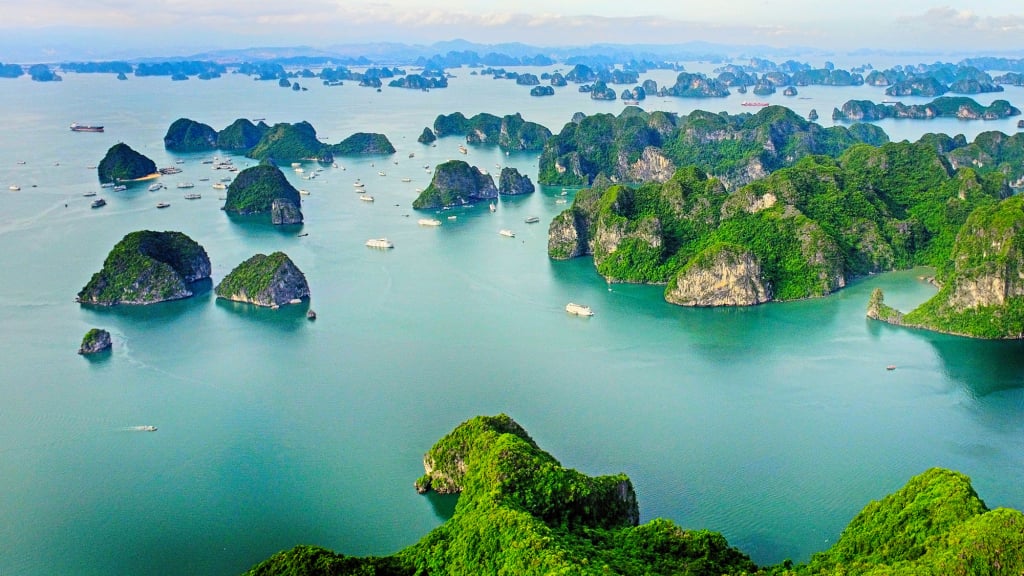
Many breakthrough solutions have been implemented, demonstrating the determination to prioritize the preservation of the heritage values, such as: Relocating fishing households on the bay to live on shore; banning fishing in the absolute protection area; ending the loading and unloading activities, transporting bulk cargo clinker, cement, wood chips on Ha Long Bay; relocating polluting facilities out of the heritage buffer zone; establishing nature reserves, special-use forests to protect the landscape to strictly protect the ecosystems of Ha Long Bay. Tourism products and services on Ha Long Bay are issued with their own standards, even cruise ships are issued with standards higher than national standards. Thanks to that, it has opened up new opportunities for tourism development in Quang Ninh province towards "green" growth associated with sustainable development based on the pillars of nature - people - culture.
In particular, the province has developed and implemented the code of conduct "Civilized tourism", the code of conduct for Quang Ninh people, the code of conduct "Ha Long Smile". In these codes of conduct, the local community plays an active role in protecting heritage values and participating in organizing service and tourism activities on Ha Long Bay in a harmonious and appropriate manner; prioritizing heritage protection in parallel with the work of preserving, exploiting and sustainably promoting the values of the World Heritage. In particular, organizing activities to experience the culture of fishing villages of fishermen on Ha Long Bay: Visiting the preserved raft houses in the area of Vong Vieng, Cua Van; listening to love songs on the real scene of Ha Long Bay; the community in Ha Long Bay preserves and promotes traditional cultural values through festivals, daily customs and folk arts. Fishing villages such as Cua Van and Vong Vieng have become attractive destinations where visitors can experience the life of fishermen and learn about island culture.
With the efforts and determination of the government, businesses and people, Ha Long Bay has truly become a famous tourism brand of Quang Ninh, Vietnam and the world; the pride of Quang Ninh and the top choice destination for domestic and international tourists, voted by CNN as one of the 25 most attractive destinations in the world in 2023.
At the workshop, delegates shared experiences from the perspective of state management and heritage ownership in promoting the value of world heritage to serve local socio-economic development and improve people's lives. At the same time, they drew some recommendations and proposals for heritage management in the coming time, including: Continuing to improve the legal basis for heritage management; promoting and further raising awareness and the role and participation of the community because they are the owners of the heritage.
In addition, localities need to strengthen environmental protection, sustainable use of resources, sustainable tourism development; promote international cooperation in preserving and promoting heritage values; train and improve the capacity of heritage management staff and apply information technology and digital transformation in the management, preservation and promotion of heritage values.
Source: https://baoquangninh.vn/hoi-thao-ve-bao-ve-va-phat-huy-gia-tri-di-san-the-gioi-dua-vao-cong-dong-3359136.html




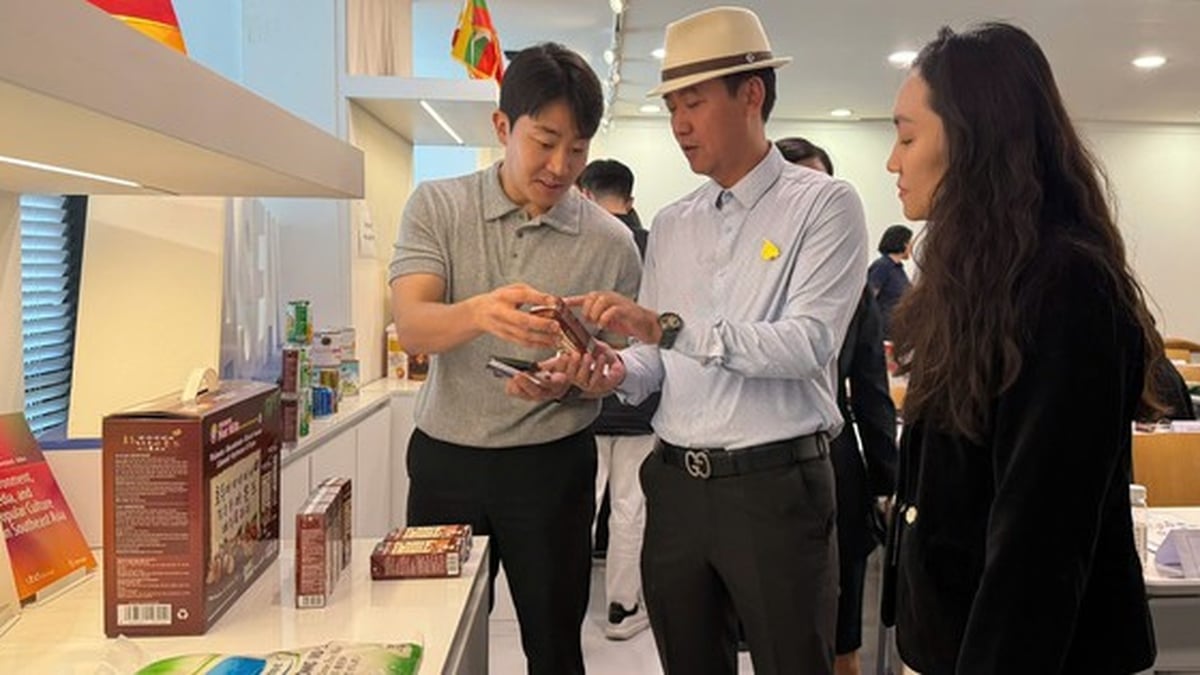
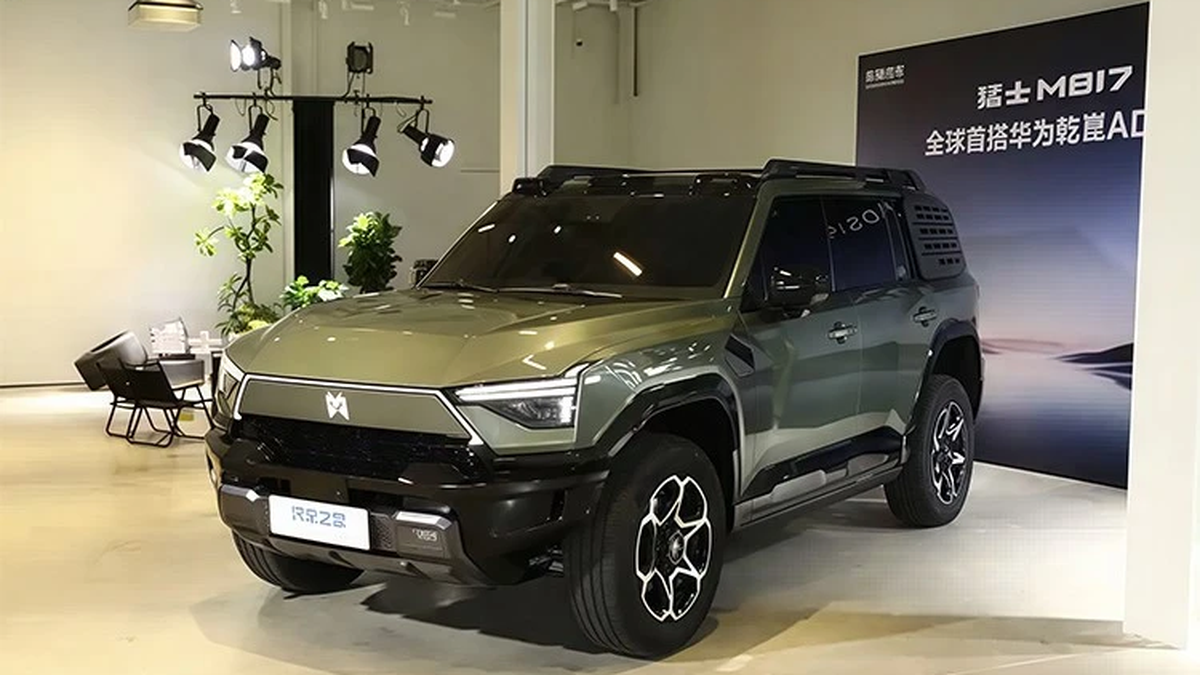
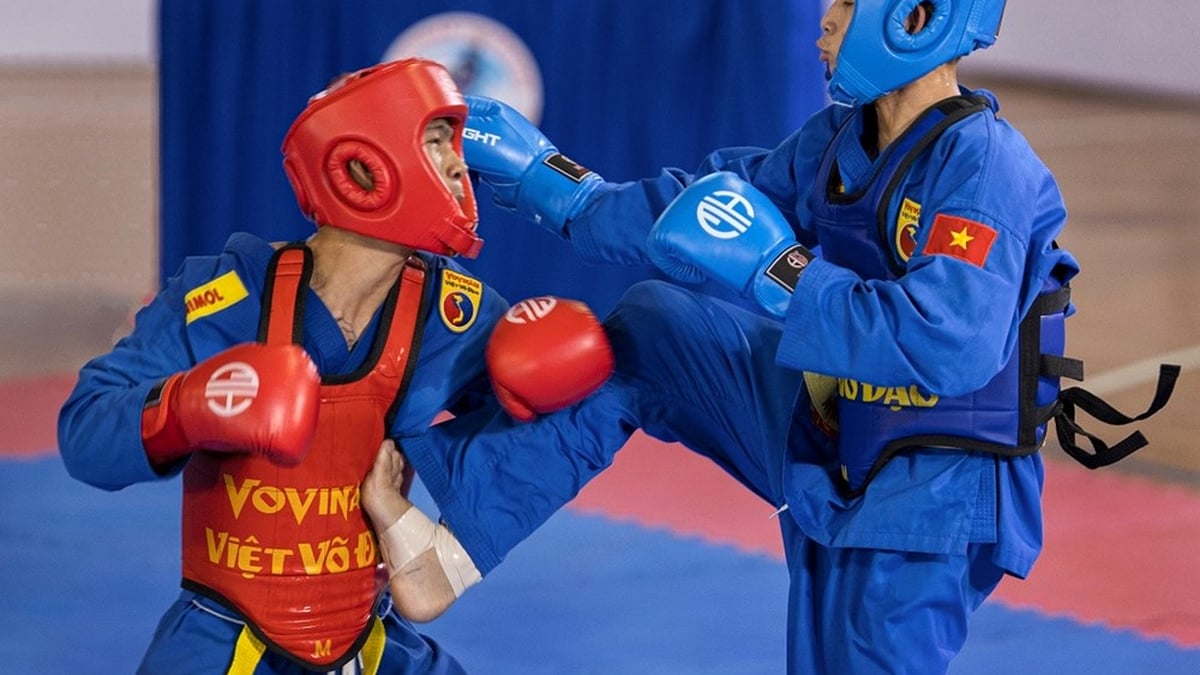

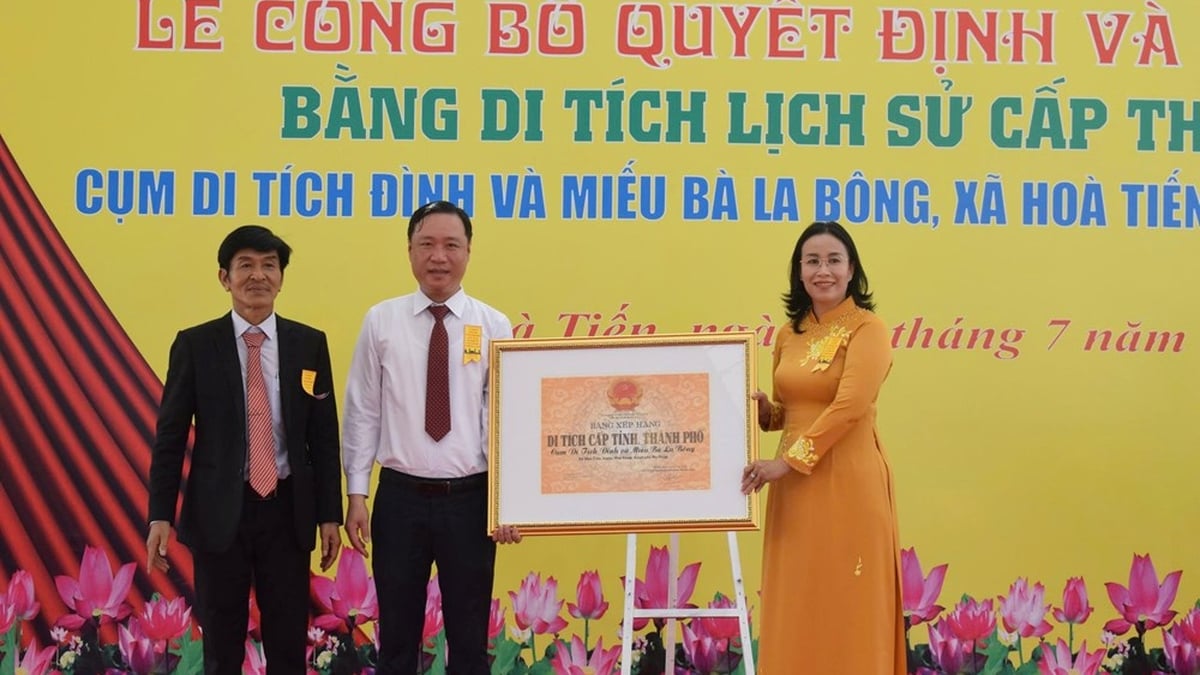
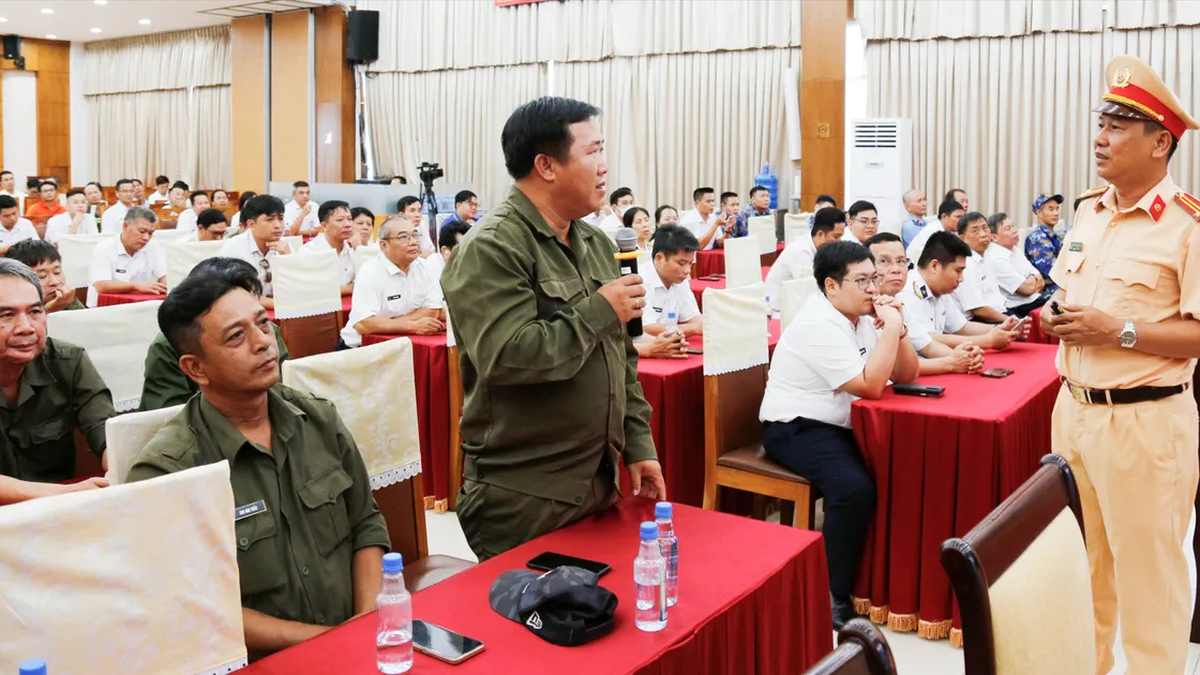
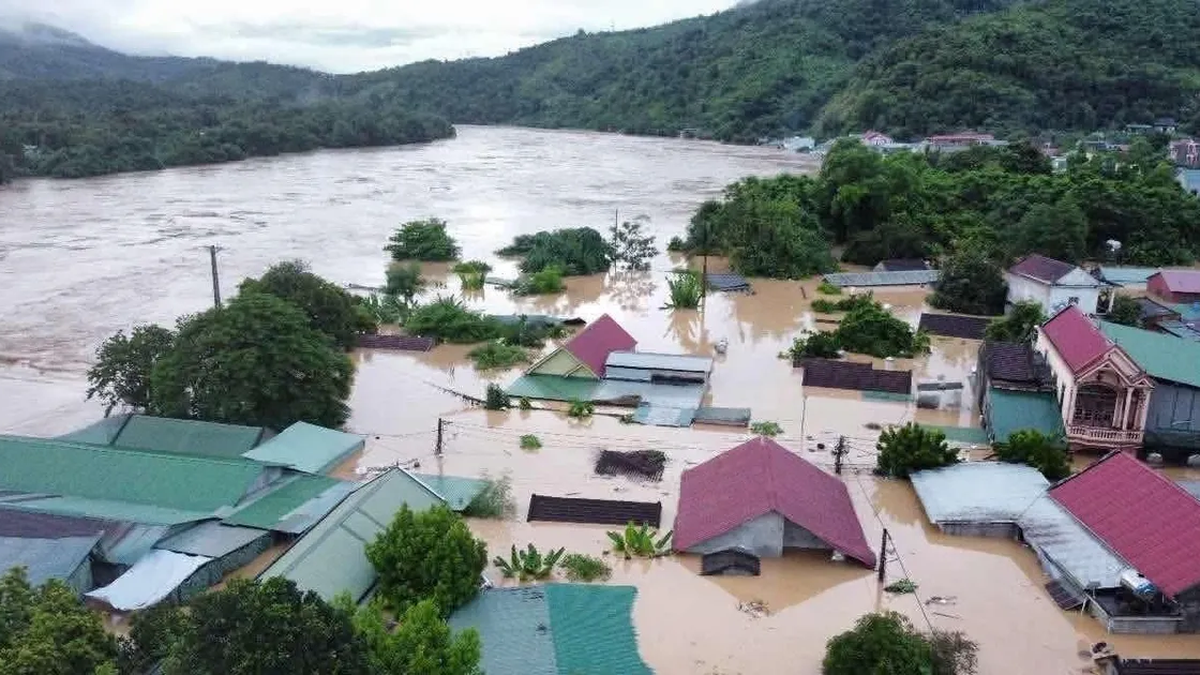
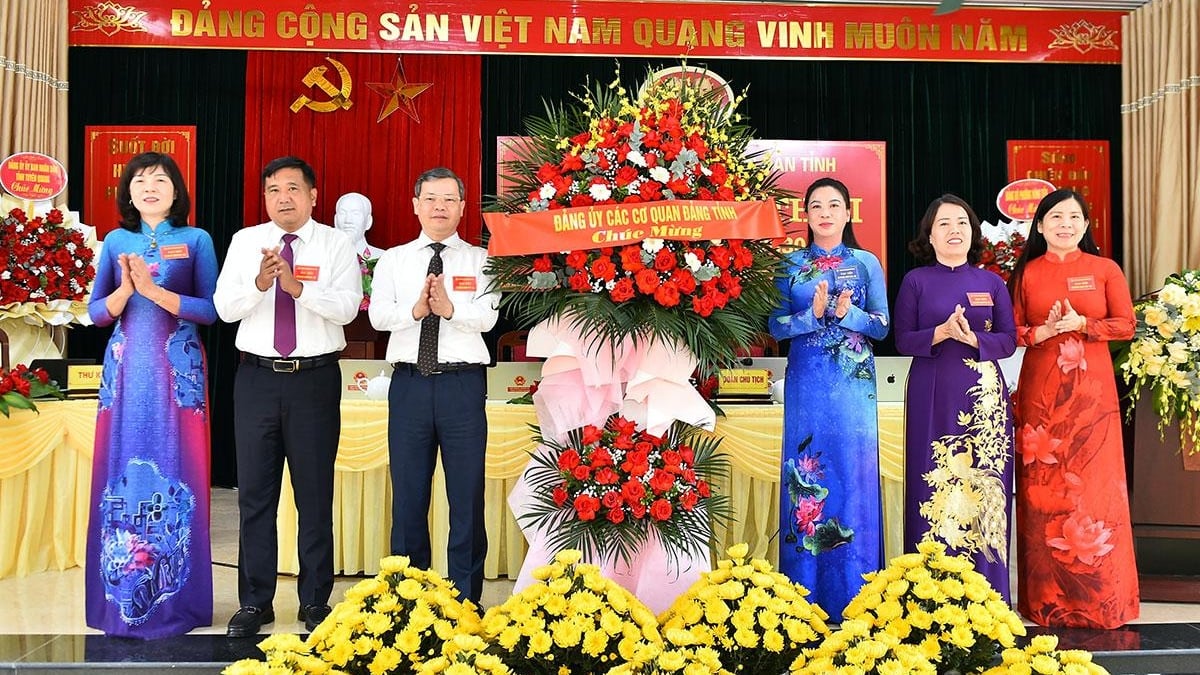




















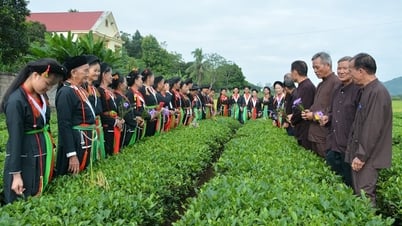

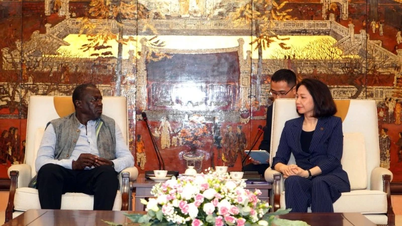









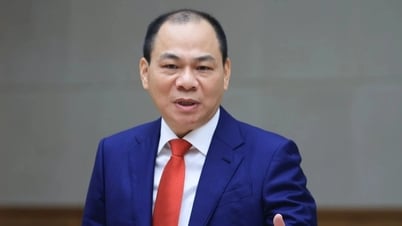

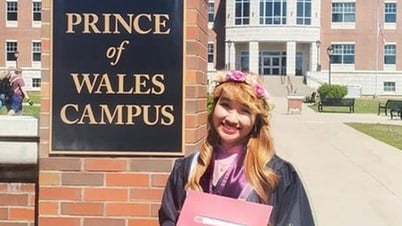










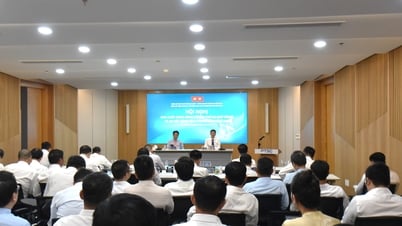

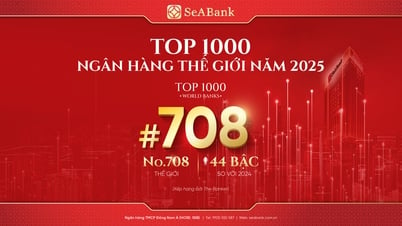
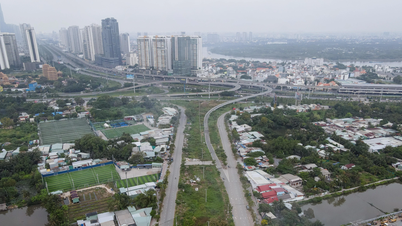





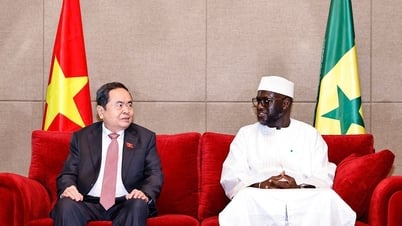
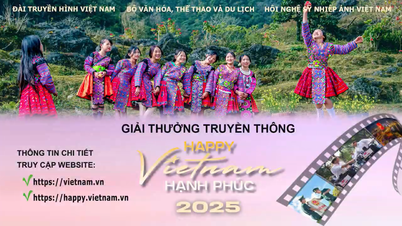
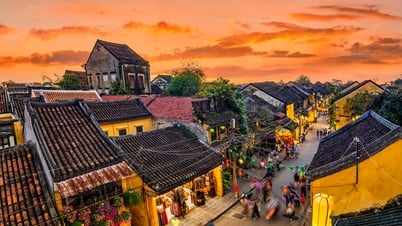

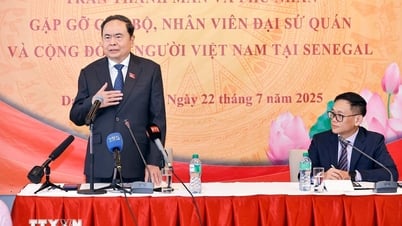
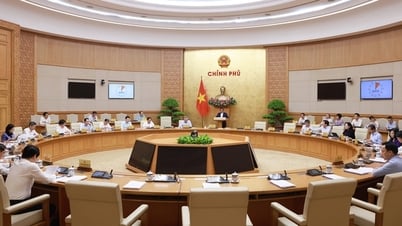

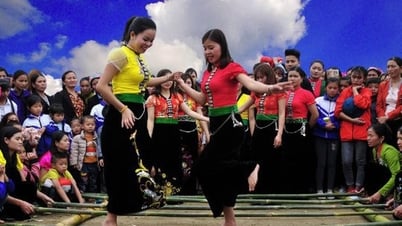
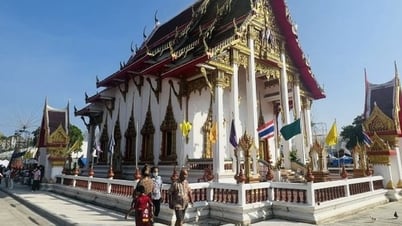
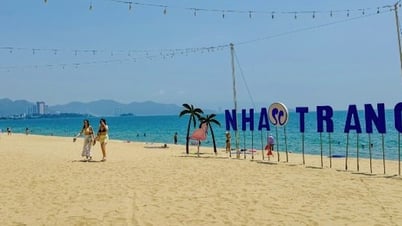


















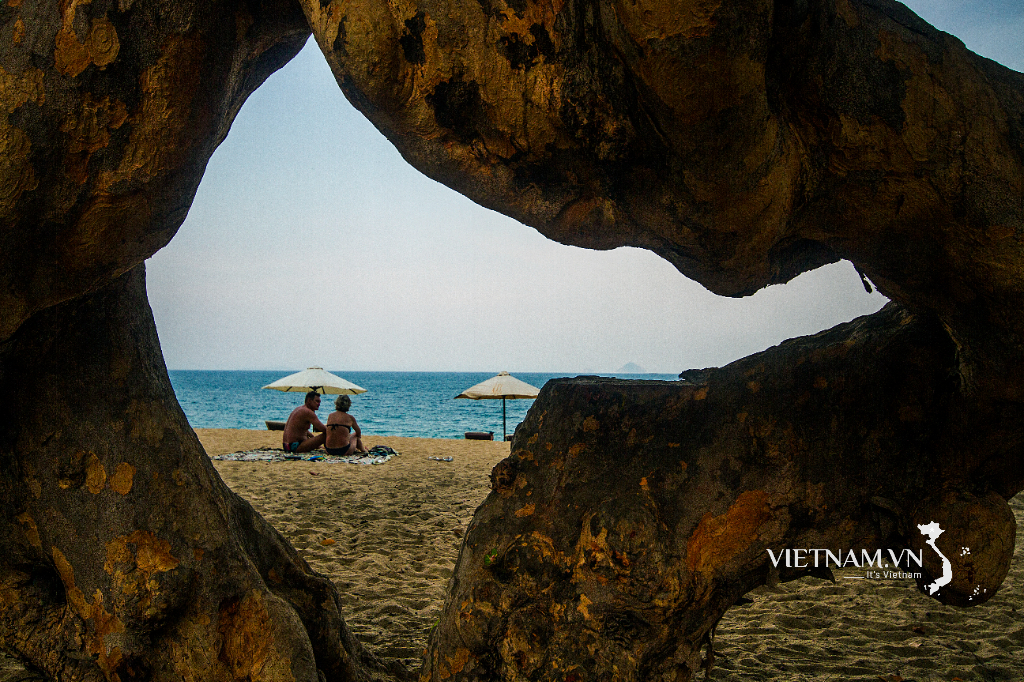


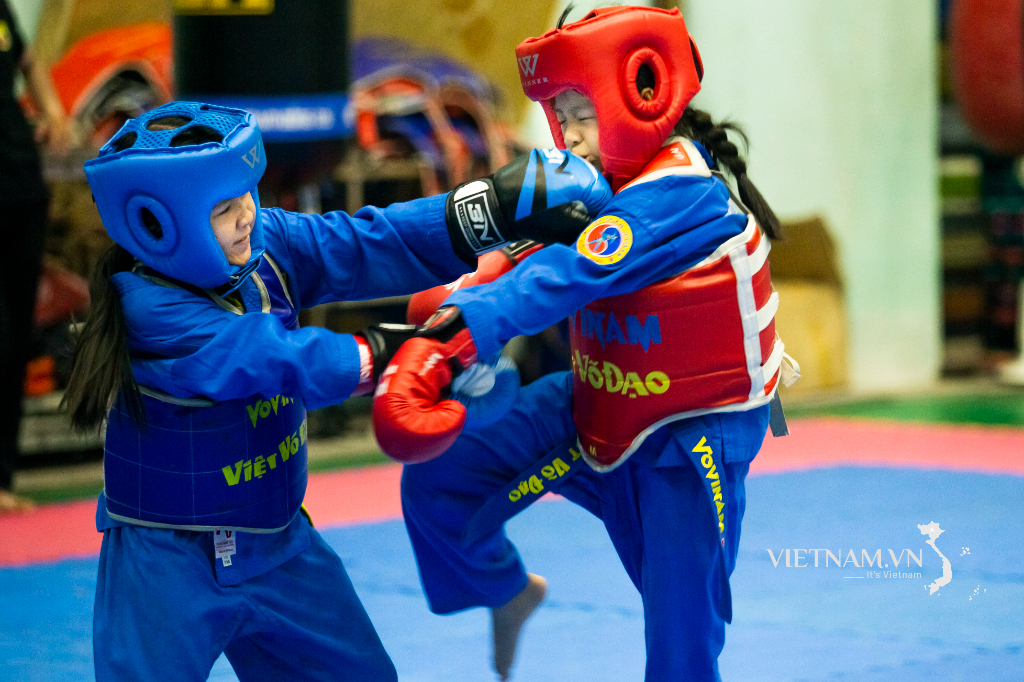
Comment (0)